|
Tēnā koutou katoa, nau mai haere mai. Welcome to this week’s New Zealand newsletter.
New Zealand is part of a global network of countries that use artificial intelligence in government decision making, for anything from the optimal scheduling of public hospital beds to the timing of a prisoner’s release, based on their likelihood of reoffending. But as John Zerilli and Colin Gavaghan at the University of Otago write, issues around the official use of AI algorithms in government include transparency, meaningful human control, data protection and bias - which is why they are calling for an independent regulator.
How long do you wait before you see your dentist? More than half of New Zealand’s young adults don’t access dental care when they need it because it is too expensive. Dental public health specialist Jonathan Broadbent argues that dental care is a neglected health issue and change is needed in the way it is funded and integrated into public health.
And with New Zealand’s first well-being budget coming up this week, Waikato University philosophy scholars Lorenzo Buscicchi and Dan Weijers explore why happiness can be so elusive.
You’ll find more articles by New Zealand authors as well as many more from The Conversation’s international editions, with a focus on the outcome of this week’s European elections.
For all New Zealand content, have a look at this page, and feel free to forward this email to anybody you think would enjoy this newsletter. They can sign up here. Thank you for reading. Ngā mihi nui ki a koutou.
|

New Zealand is among a group of countries whose governments use predictive algorithms to help them make decisions.
from www.shutterstock.com
John Zerilli, University of Otago; Colin Gavaghan, University of Otago
Academics call for an independent regulator to address risks associated with the use of artificial intelligence by government agencies.
|

The risk for dental problems is determined in early childhood.
from www.shutterstock.com
Jonathan Broadbent, University of Otago
The high cost of dental treatment is stopping almost half of all New Zealanders from seeking care when they need it. Funding at least parts of dental care publicly could change that.
|

A suite of new well-being measures are at the centre of New Zealand’s budget plan.
from www.shutterstock.com
Lorenzo Buscicchi, University of Waikato; Dan Weijers, University of Waikato
For New Zealand's first well-being budget, the government has moved away from traditional economic growth measures to focus on goals like cultural identity, social connection and happiness.
|
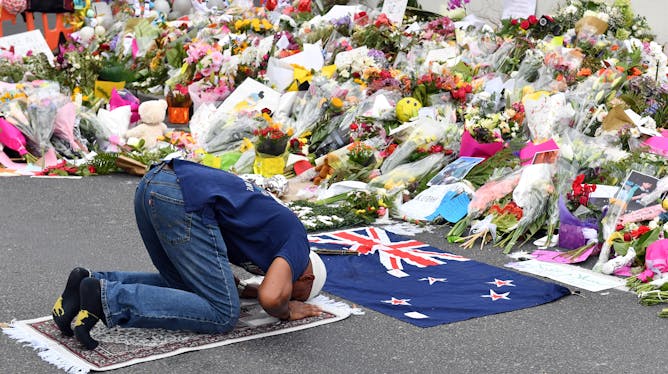
The gunman in the mosque attacks had already faced 50 murder charges before a new terrorism charge was brought against him this week.
Mick Tsikas/AAP
Keiran Hardy, Griffith University
New Zealand's terrorism law has never been prosecuted successfully since it was enacted nearly 20 years ago. So, why are prosecutors bringing a terrorism charge against the Christchurch shooter?
|

Protests followed the terrorist attack that killed more than 40 Indian military personnel in the disputed state of Jammu and Kashmir.
AAP/Jaipal Singh
Robert G. Patman, University of Otago; Dr Arshad Ali, University of Otago
Escalating tensions between India and Pakistan over the disputed Kashmir border are a stark reminder that the subcontinent is one of the world’s likeliest nuclear flashpoints.
|
From The Conversation's international editions
|
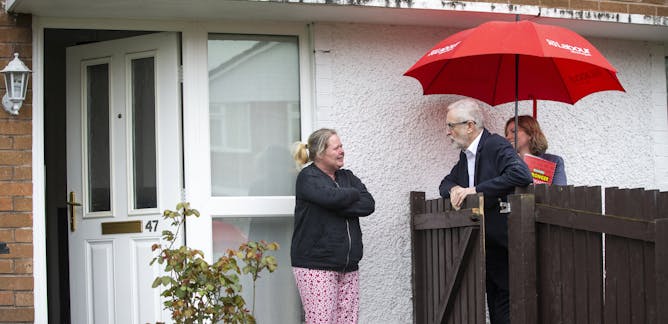
Steven Fielding, University of Nottingham
European vote sees electorate again dividing into Leave and Remain, as the Labour leader remained on the fence.
| |
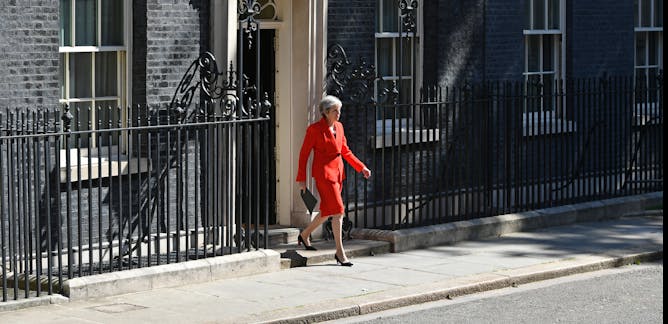
Tom Quinn, University of Essex
Boris Johnson, Amber Rudd, Dominic Raab? Who will be the next prime minister?
|
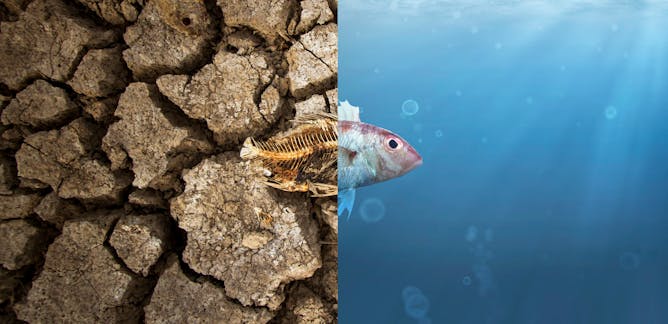
James Dyke, University of Exeter
Why radical changes to society are needed if we are to escape environmental disaster.
| |
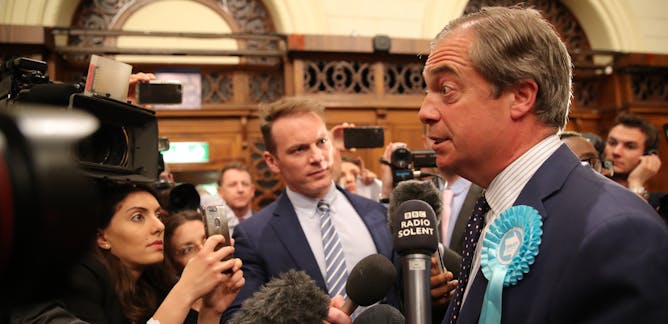
Paul Whiteley, University of Essex
Newcomers took most support from the Conservatives. But survey shows Nigel Farage is not as popular as he likes to think.
|

Michael J. I. Brown, Monash University
The first 60 satellites from Elon Musk's planned low orbit internet network have lit up the skies. But with more planned, astronomers say the satellites could ruin their work.
| |
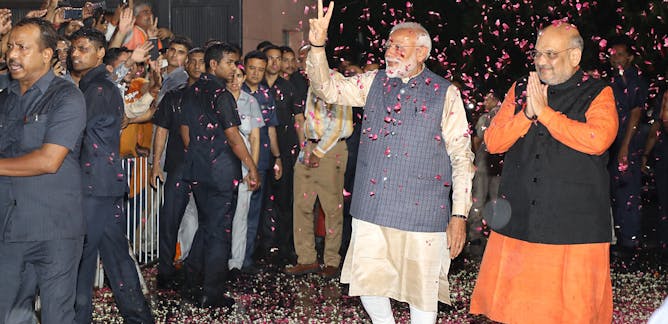
Annabel Bligh, The Conversation; Gemma Ware, The Conversation
A panel of academic experts assess Narendra Modi's victory in the final episode of our India Tomorrow series.
|

Lotfi Belkhir, McMaster University
The first study to assess the carbon footprint of the pharmaceutical industry finds that it is far from green.
| |

Evelyn Alsultany, University of Southern California
While the 2019 'Aladdin' is a big improvement from the 1992 version, it still recycles some old tropes.
|
|
|